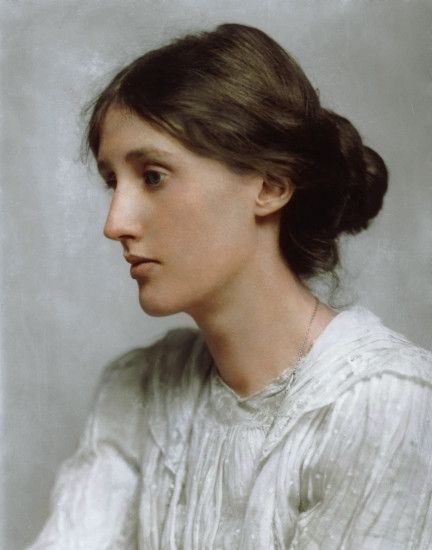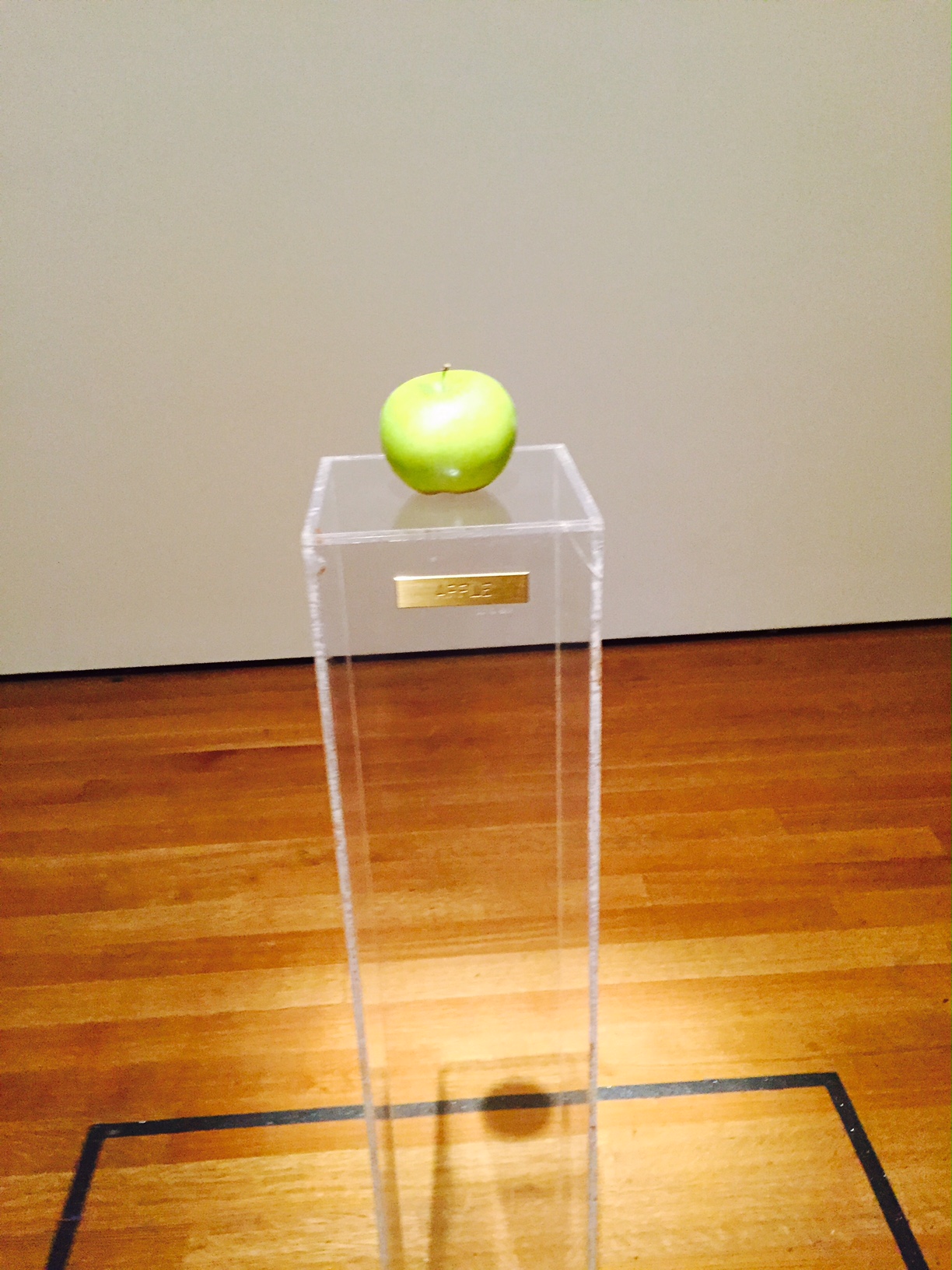
Mrs. Woolf, Would You Care to Join Me for a Cup of Tea?
Prelude:
I turned the corner of Great Russell Street and realized I was about to meet my favorite author, Virginia Woolf. My heart was filled with a mixture of awe, some intimidation, and the realization that we came from such different pasts. I finally decided that I would be just who I am – a woman who had fallen in love with her works in graduate school. Her battle with “moodiness” or what we now call bipolar illness interested me, but I probably would not be able to approach that most difficult subject. I had carefully chosen The Bloomsbury Hotel, not only because it was elegant, but also nearby were all of the treasures of Bloomsbury including the British Museum.
Virginia Woolf enters. She is very tall and very thin. She is dressed beautifully in flowing cottons and silks and has more color on than I remembered from her photographs.
Mrs. Stormes:
Mrs. Woolf, it is indeed a delight to meet you. Thank you for having tea with me here in The Bloomsbury Hotel.
Mrs. Woolf:
Thank you, Mrs. Stormes.
Mrs. Stormes:
I first fell in love with your works, particularly Mrs. Dalloway and To the Lighthouse, but eventually all of them when I was studying the Modern Novel in graduate school. I find it interesting that we call your works modern. And yet there is something that hearkens to another earlier period. I found your works full of a modern interpretation of spiritual immanence, transcendence and redemption. Many of your characters depict a sense of yearning toward the beyond. Also your art moves each character into another realm where they experience the “other.” When I think of some of your characters such as Lily – the artist in To the Lighthouse – and Mrs. Dallowa, in Mrs. Dalloway, I think you have imbued them with a spiritual depth of questioning and living in the present. Nothing is taken for granted; all of life is examined. Do you find this belief or observation strange or unbelievable? Am I forcing this issue?
Mrs. Woolf:
No, not at all. I grew up in a household of atheists, but I did believe in the power of the person and the soul to move beyond the present into something that lies beyond and outside the person. We were rebels and outside the fold in our thinking. I sought to go deeper inside myself and to write about the life I saw in a modern way. I was a modern day thinker writing novels in a stream of consciousness manner entering the mind of my characters and writing about what I saw and believed to be true. Spirituality is part of the mind and soul.
Mrs. Stormes:
Yes, that is what jumped off the page to me. Bloomsbury also had many artists and philosophers and thinkers. Did they also strongly identify with the modern period and your approach to writing and art?
Mrs. Woolf:
Not completely. We had a lot of variety in our group, but one commonality is that art and decorative art were both equally regarded. We valued what you would call Post-impressionist painting as well as beautifully painted furniture, bookcases, and pottery and other decorative arts. Vanessa produced all of my book jackets, which again show an immense respect for an understanding of the graphic arts.
Mrs. Stormes:
Let me move to another one of your works. This time we shall look at a work of non-fiction. In A Room of One’s Own you speak of the 2 essentials which a woman needs in order to write. They are: “a room of her own and five hundred guineas a year.” Do you still believe in those guidelines and how do women today write who do not have the $30,000 which would be the equivalent of 500 guineas (given inflation) in your day?
Mrs. Woolf:
I stand by what I said for the time in which I lived. However, there are many differences for the modern day woman of the 21st Century. First of all so many more are so better educated than we were. Women were not able to be part of the best universities and colleges. I did study history, literature and philosophy. As far as money, inflation has meant that it is harder to live on a small amount of money. My understanding of the writer today is that until they are published and generating money they must live on a small amount or work both in another field as well as writing. This is unfortunate as it will slow their progress and take longer for them to achieve their goals. However, you must not think it was too easy for us. We had two world wars, and our styles of living were questioned until after we became famous and eccentric and dare I say it – dead.
Mrs. Stormes:
One thing I wish to address perhaps is something that was unable to be approached in your times. It is a delicate subject, but one that I think very important. Would you be so kind to speak of the moods both that you experienced throughout your life as well as their acceptance among your peers at Bloomsbury?
Mrs. Woolf:
I wish we had known more about what we were dealing with. We were intelligent people, but these moods were often too large for us to handle. I was a depressive and often full of melancholy. The cost of depression is that it leaves you totally debilitated and unable to think or write. Leonard tried desperately to understand me and he went to great lengths to chart the course of my most violent mood swings, but finally it is extremely difficult to understand the depths of one’s malaise. And then there were the wars which brought tumult, rationing and bombing. I longed for the periods of mania in which I could write frantically and travel and socialize with all of Bloomsbury and especially V. Sackville-West. This is all I can say on this subject. It would eventually take my life at 59. I was unable to face each day knowing that this monster you would call manic-depression was staring me in the face.
Mrs. Stormes:
Thank you. We have made some progress with the diagnosis and therapeutic treatment of mental illness, but we are far from great solutions. However, today there is still enormous stigma and shame associated with these illnesses. Society is unwilling to talk about this condition in a way that would put it on equal footing with other illnesses. It is amazing to me how many great writers, artists and thinkers suffer from this disease. Until we do face it squarely we will continue to treat the person in crisis mode and have utter disregard for them in society. Now I am speaking of the extremes. There are many doctors who do not follow this practice and they are our future. You suffered greatly and at a time in your life when you were at the pinnacle of your writing.
Mrs. Woolf:
So many critics would say that my pinnacle was the 1920’s since that is when I wrote Mrs. Dalloway, To the Lighthouse, Orlando and A Room of One’s Own, but I agree with you I was not finished. Perhaps I would have done much more on gender and feminism and everything that your generation calls “modern.”
Mrs. Stormes:
Thank you. This has been a most extraordinary tea. In conclusion, if you could tell me your favorite novel or work of non-fiction. We know the most controversial one is Orlando. That has kept the critics busy for decades.
Mrs. Woolf:
I would have to say Mrs. Dalloway and not because she is indeed a closely painted portrait of me. I love the way it begins with such positivity in the air. There are flowers and there is to be a party. Everyone is scurrying around holding onto their hopes. There is such desire for connection and life. But then of course it changes. There is war and the ravages of it. We can never escape that. There is Clarissa and there is Septimus and their lives pass. On the fringes something was happening underneath all of that party-like celebration. This was me so full of life and yet also fearful of living. I wanted life to go on forever.
Mrs. Stormes:
Yes that is so powerful. Clarissa was so full of life at her party and aware of what had happened to Septimus. Both lives were outside her and both poles were living within her. This is what moves us so. I like to think that you gave us Clarissa to bring these two poles together into one.





5 Comments
Lorene roccon
Loved your piece. Keep up the good work. Passing it on to my sister.
Carolie
Really good, Lini.
Makes we want to retry reading her work.
Linda
Try Mrs. Dalloway and you will get hooked.
Sally hamilton
Beautifully written, with grace and precision. You bring together several important themes in a fresh and creative way. Look forward to readung more from you!
lstormes@yahoo.com
Thank you, Sally. I so love her and her writings.